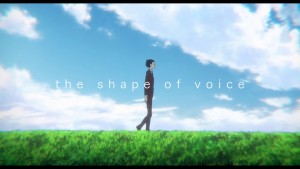 So, Koe no Katachi… Where to begin with this one? I have a lot of history with this story – it’s a manga I frequently loved and occasionally wanted to chuck into the river (but mostly loved). So I go into the movie with some very well-defined views about it, and how it should be translated to anime. I also have a long-standing mixed relationship with Kyoto Animation, to the point where I wasn’t thrilled when I heard it was they who would be adapting Koe no Katachi. It wasn’t abject despair as with Shaft and Sangatsu no Lion (for the record, while I love both I think this is the better manga) – more like an uneasy apprehension that the essence of the manga wouldn’t survive the translation.
So, Koe no Katachi… Where to begin with this one? I have a lot of history with this story – it’s a manga I frequently loved and occasionally wanted to chuck into the river (but mostly loved). So I go into the movie with some very well-defined views about it, and how it should be translated to anime. I also have a long-standing mixed relationship with Kyoto Animation, to the point where I wasn’t thrilled when I heard it was they who would be adapting Koe no Katachi. It wasn’t abject despair as with Shaft and Sangatsu no Lion (for the record, while I love both I think this is the better manga) – more like an uneasy apprehension that the essence of the manga wouldn’t survive the translation.
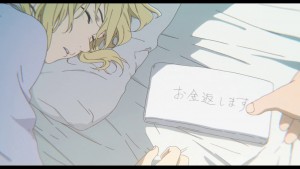 Why is that? Well, Kyoto Animation and Shaft are alike in one very significant way – the tendency is for the imprint of the studio to take precedence over the material itself. Now, that imprint is a vastly superior product in the case of KyoAni as compared to Shaft (in terms of production and storytelling), but the problem is the same. KyoAni tends to adapt obscure material that they own outright, and while the main reason for this is financial (no annoying outside companies to split profits with) it also plays into their formula because these works don’t tend to have strong, familiar personalities to being with. And when you’re the Medical Mechanica of anime production, that just makes your job easier.
Why is that? Well, Kyoto Animation and Shaft are alike in one very significant way – the tendency is for the imprint of the studio to take precedence over the material itself. Now, that imprint is a vastly superior product in the case of KyoAni as compared to Shaft (in terms of production and storytelling), but the problem is the same. KyoAni tends to adapt obscure material that they own outright, and while the main reason for this is financial (no annoying outside companies to split profits with) it also plays into their formula because these works don’t tend to have strong, familiar personalities to being with. And when you’re the Medical Mechanica of anime production, that just makes your job easier.
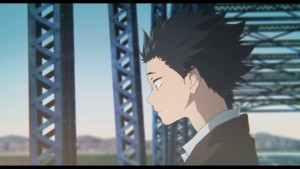 Thus, my apprehension – because Koe no Katachi is a story with a very strong sense of identity all its own. Mangaka Ooima Yoshitoki was only 24 when it began serialization and it’s one of those manga where the youthfulness of the writer shows through in a good way. It’s a bit rough and awkward narratively at times and the art isn’t to everyone’s taste, but it comes from a place of deeply felt emotion and you’d never mistake it for anything else. I didn’t want to see that lost when it became an anime, and I’m happy to say it wasn’t. Koe no Katachi is still recognizably itself – there are KyoAni visual flourishes throughout, but the characters look like themselves. And the essence of the story remains very much true to itself.
Thus, my apprehension – because Koe no Katachi is a story with a very strong sense of identity all its own. Mangaka Ooima Yoshitoki was only 24 when it began serialization and it’s one of those manga where the youthfulness of the writer shows through in a good way. It’s a bit rough and awkward narratively at times and the art isn’t to everyone’s taste, but it comes from a place of deeply felt emotion and you’d never mistake it for anything else. I didn’t want to see that lost when it became an anime, and I’m happy to say it wasn’t. Koe no Katachi is still recognizably itself – there are KyoAni visual flourishes throughout, but the characters look like themselves. And the essence of the story remains very much true to itself.
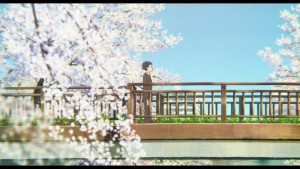 The biggest problem I have with this movie, in fact, is not anything specific Kyoto Animation did to it (happily they mostly left the homogenizer unplugged), but that they chose to adapt it as a movie in the first place. I’m very much of the opinion that this should have been a series – at 7 volumes and 64 chapters, it would have made a one-cour anime with relatively minimal alteration. The result of the decision to make it a film is that it somehow feels too long and too short at the same time. This is such an emotionally heavy story that at 130 minutes I find it quite exhausting – yet it palpably only skims the surface of the story it’s telling. Or so it seems to me, anyway – I can’t speak to how it plays to someone who’s never read the manga.
The biggest problem I have with this movie, in fact, is not anything specific Kyoto Animation did to it (happily they mostly left the homogenizer unplugged), but that they chose to adapt it as a movie in the first place. I’m very much of the opinion that this should have been a series – at 7 volumes and 64 chapters, it would have made a one-cour anime with relatively minimal alteration. The result of the decision to make it a film is that it somehow feels too long and too short at the same time. This is such an emotionally heavy story that at 130 minutes I find it quite exhausting – yet it palpably only skims the surface of the story it’s telling. Or so it seems to me, anyway – I can’t speak to how it plays to someone who’s never read the manga.
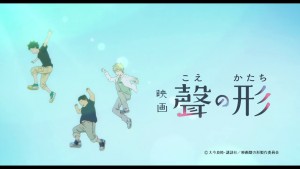 I wish I had a dollar for every time I heard someone say they were fine with this, because there were so many “unnecessary” or “unimportant” subplots in the manga – I could buy a nice bottle of whiskey. As is usually (though not always) the case when this happens, I wholly disagree – I think those unnecessary threads are what make Koe no Katachi a complete and compelling narrative. There are a lot of characters in the movie who seem totally a cipher to me – people like Mashiba and Sahara and Shimada. In the manga you come to understand these kids and why they are who they are, but all of that is lost in the movie because there just isn’t time for them to be anything but plot devices. Even major characters like Yuzuru and Nagatsuka have the meat of their character arcs cut, and for me that’s a real shame. Yes, Shouya and Shouko are the heart of Koe no Katachi and its most important characters, but this story is bigger than just the two of them (and better for it).
I wish I had a dollar for every time I heard someone say they were fine with this, because there were so many “unnecessary” or “unimportant” subplots in the manga – I could buy a nice bottle of whiskey. As is usually (though not always) the case when this happens, I wholly disagree – I think those unnecessary threads are what make Koe no Katachi a complete and compelling narrative. There are a lot of characters in the movie who seem totally a cipher to me – people like Mashiba and Sahara and Shimada. In the manga you come to understand these kids and why they are who they are, but all of that is lost in the movie because there just isn’t time for them to be anything but plot devices. Even major characters like Yuzuru and Nagatsuka have the meat of their character arcs cut, and for me that’s a real shame. Yes, Shouya and Shouko are the heart of Koe no Katachi and its most important characters, but this story is bigger than just the two of them (and better for it).
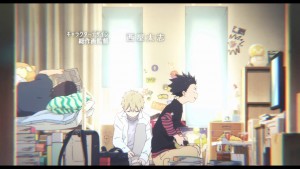 That is what it is, I suppose – and Koe no Katachi the film does a very fine job of telling the story of Ishida Shouya and Nishimiya Shouko. In Miyu Irino you have pretty much the only actor I could ever imagine playing Shouya, and it’s a given he’ll be superb. As for Hayami Saori as Shouko, that was always going to be a tough assignment – there were many who felt the appropriate thing would have been to have a deaf actress play her. I think Hayami does well for the most part. And in the other critical role of Yuzuru, Yuuki Aoi is marvelous as usual – and she has to communicate the vast emotional palette of this complex little girl without the aid of most of Yuzuru’s backstory.
That is what it is, I suppose – and Koe no Katachi the film does a very fine job of telling the story of Ishida Shouya and Nishimiya Shouko. In Miyu Irino you have pretty much the only actor I could ever imagine playing Shouya, and it’s a given he’ll be superb. As for Hayami Saori as Shouko, that was always going to be a tough assignment – there were many who felt the appropriate thing would have been to have a deaf actress play her. I think Hayami does well for the most part. And in the other critical role of Yuzuru, Yuuki Aoi is marvelous as usual – and she has to communicate the vast emotional palette of this complex little girl without the aid of most of Yuzuru’s backstory.
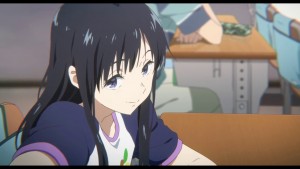 I like a lot of the choices director Yamada Naoko (who does much better with movies than series, it seems) made here, starting with the decision to use The Who’s “My Generation” to introduce Shouya as a 12 year-old (played by Matsuoka Mayu) and his posse. One of the most gut-wrenching elements of Koe no Katachi is the transformation of Shouya from a carefree, happy idiot of a boy to a tortured, self-loathing adolescent who’s prepared to take his own life – it was vital that the movie not screw that up, and it didn’t. Bullying is very much at the heart of this story, and it communicates how easily things can go from bad to worse quickly with kids this age (and having an idiot for a teacher doesn’t help).
I like a lot of the choices director Yamada Naoko (who does much better with movies than series, it seems) made here, starting with the decision to use The Who’s “My Generation” to introduce Shouya as a 12 year-old (played by Matsuoka Mayu) and his posse. One of the most gut-wrenching elements of Koe no Katachi is the transformation of Shouya from a carefree, happy idiot of a boy to a tortured, self-loathing adolescent who’s prepared to take his own life – it was vital that the movie not screw that up, and it didn’t. Bullying is very much at the heart of this story, and it communicates how easily things can go from bad to worse quickly with kids this age (and having an idiot for a teacher doesn’t help).
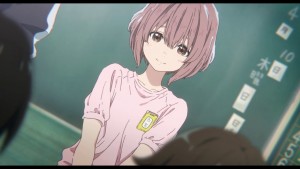 For me at least, Koe no Katachi is a series that prompts one to ask a lot of questions for which there aren’t easy answers – I always got the sense that even the mangaka was somewhat confused about them herself, and exploring them through her writing. One of the things I really admire about it is that there are characters in it that I genuinely disliked (such as Shouko’s mother and Ueno Naoka) and I never felt as if Ooima-sensei was judging me for feeling that way. The fact is that the world is full of people who act selfishly and hurt other people, sometimes by accident and sometimes on purpose. Not everyone has to be redeemed, and not everyone has to be forgiven. I would have liked the series even better if Ooima has stuck to her guns even more on that front, but she’s still pretty unforgiving.
For me at least, Koe no Katachi is a series that prompts one to ask a lot of questions for which there aren’t easy answers – I always got the sense that even the mangaka was somewhat confused about them herself, and exploring them through her writing. One of the things I really admire about it is that there are characters in it that I genuinely disliked (such as Shouko’s mother and Ueno Naoka) and I never felt as if Ooima-sensei was judging me for feeling that way. The fact is that the world is full of people who act selfishly and hurt other people, sometimes by accident and sometimes on purpose. Not everyone has to be redeemed, and not everyone has to be forgiven. I would have liked the series even better if Ooima has stuck to her guns even more on that front, but she’s still pretty unforgiving.
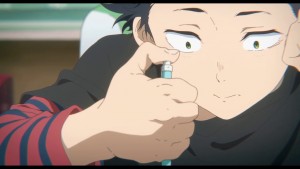 That’s what’s really interesting about this series for me. While there are certainly positive messages about loving yourself and forgiveness, equally important is the idea that it’s okay to blame other people when things actually are their fault. Many of the problems of Shouko and Shouya, it always struck me, came about as a result of them internalizing their pain too much – just be honest and don’t take responsibility for everything. As much as I dislike Ueno, she at least says what she thinks – the problem is, she’s usually wrong in what she thinks. By blaming themselves for the sins of others, Shouya and Shouko end up in a downward spiral of self-inflicted suffering. I’m not saying Shouya didn’t make bad decisions as a 6th-grader that started the story down its dark path, but at some point you have to accept that children make mistakes and get past it.
That’s what’s really interesting about this series for me. While there are certainly positive messages about loving yourself and forgiveness, equally important is the idea that it’s okay to blame other people when things actually are their fault. Many of the problems of Shouko and Shouya, it always struck me, came about as a result of them internalizing their pain too much – just be honest and don’t take responsibility for everything. As much as I dislike Ueno, she at least says what she thinks – the problem is, she’s usually wrong in what she thinks. By blaming themselves for the sins of others, Shouya and Shouko end up in a downward spiral of self-inflicted suffering. I’m not saying Shouya didn’t make bad decisions as a 6th-grader that started the story down its dark path, but at some point you have to accept that children make mistakes and get past it.
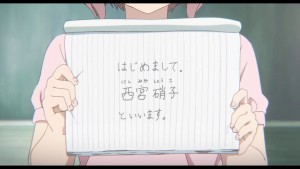 I’m disappointed that Koe no Katachi didn’t get a more comprehensive adaptation, because movie-only viewers will never experience the cast and the story in their fully realized form. But there’s always the manga, which I heartily encourage everyone to read, and as a film Koe no Katachi stands up very well on its own merits. It’s one of the better anime treatments of bullying, social anxiety and depression we’ve seen in many a year – it doesn’t paint adolescence in rose-colored nostalgia glasses by any means. It’s a dark ride that most of us don’t get through unscathed, and for some who don’t find a helping hand and power to forgive themselves for their own failings, one that ends in tragedy. I’m glad we have stories like Koe no Katachi that stare into that darkness without looking away, offering a message of hope without pretending that hope is all it takes.
I’m disappointed that Koe no Katachi didn’t get a more comprehensive adaptation, because movie-only viewers will never experience the cast and the story in their fully realized form. But there’s always the manga, which I heartily encourage everyone to read, and as a film Koe no Katachi stands up very well on its own merits. It’s one of the better anime treatments of bullying, social anxiety and depression we’ve seen in many a year – it doesn’t paint adolescence in rose-colored nostalgia glasses by any means. It’s a dark ride that most of us don’t get through unscathed, and for some who don’t find a helping hand and power to forgive themselves for their own failings, one that ends in tragedy. I’m glad we have stories like Koe no Katachi that stare into that darkness without looking away, offering a message of hope without pretending that hope is all it takes.


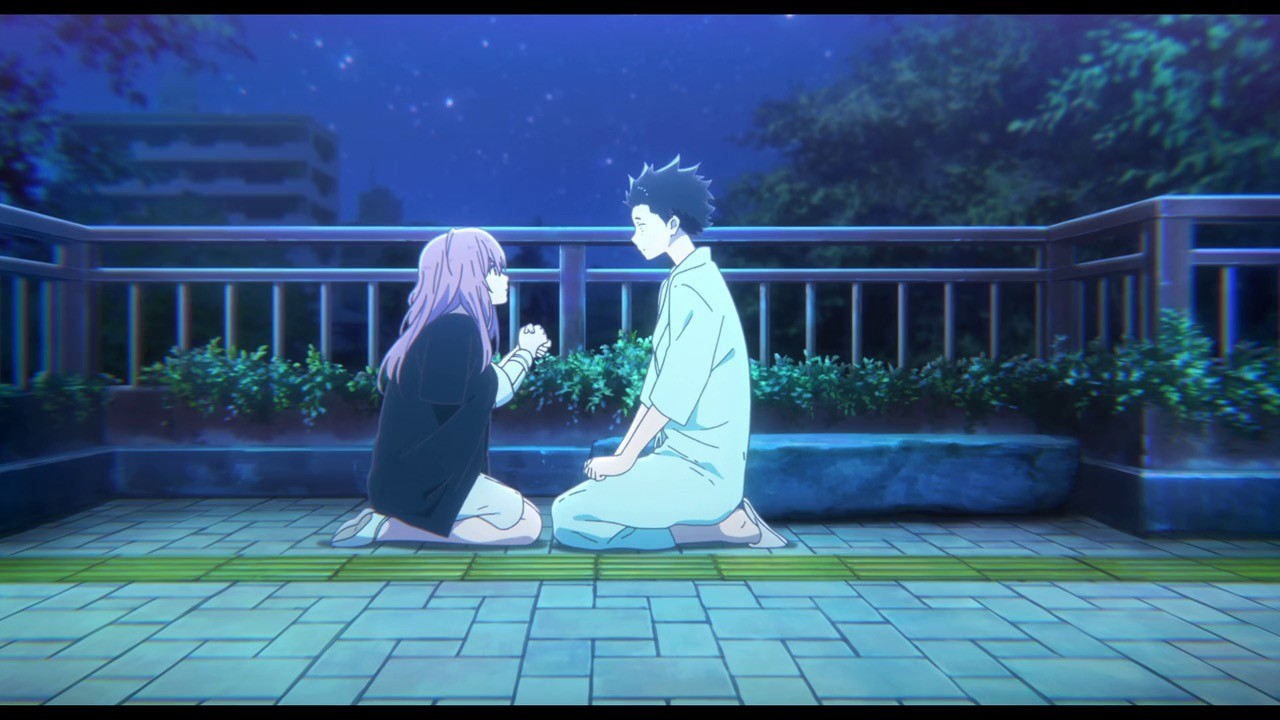
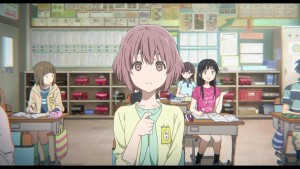
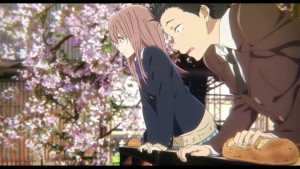

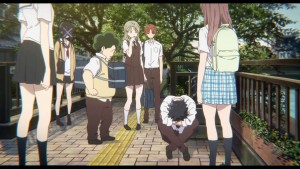
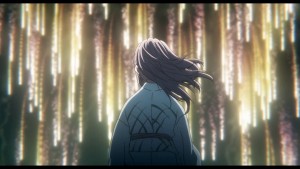
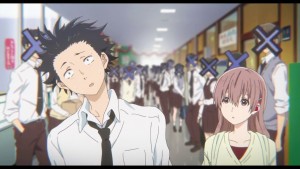
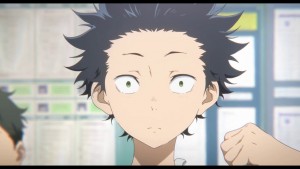
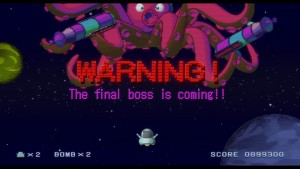
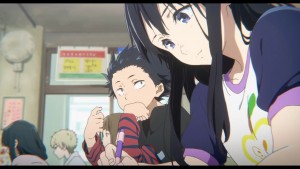
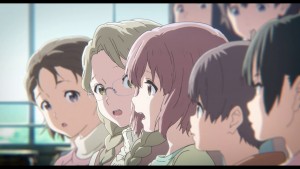
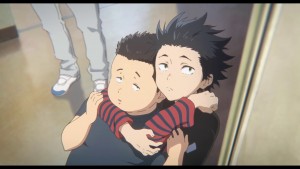
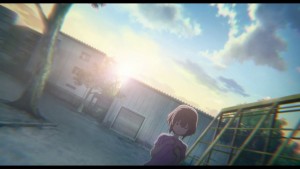
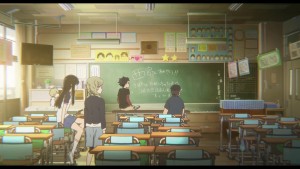
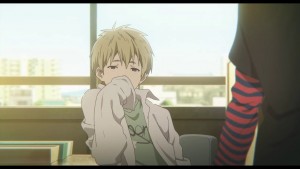
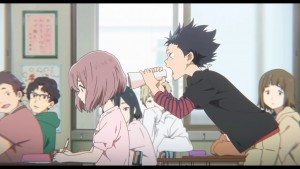
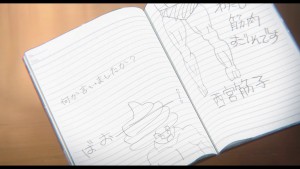
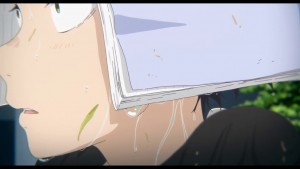
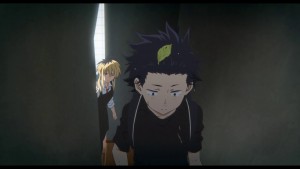
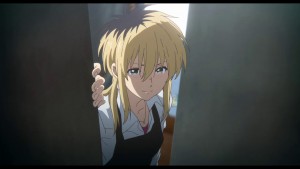
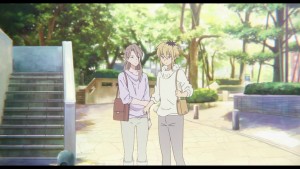
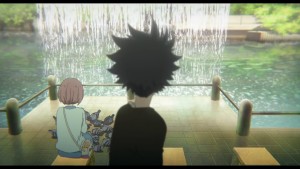
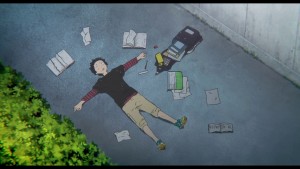
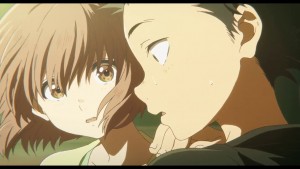
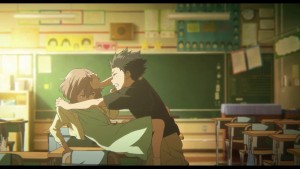
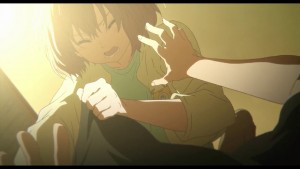
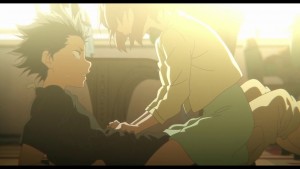
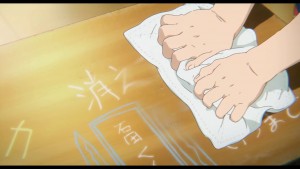
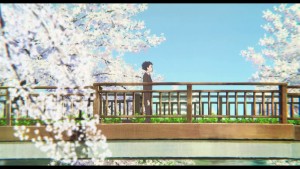
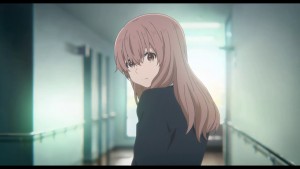
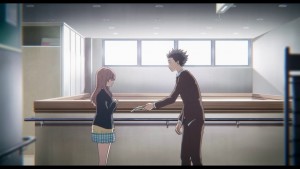
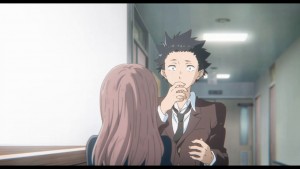
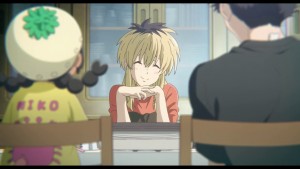
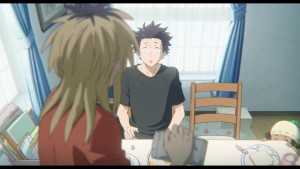
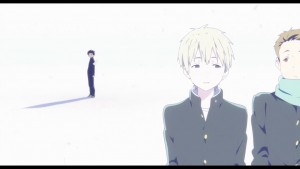
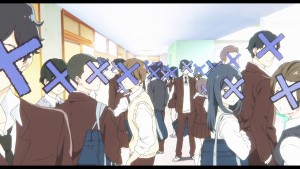
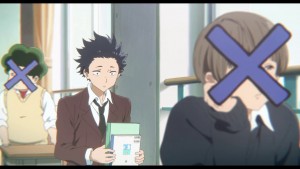
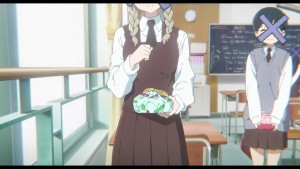
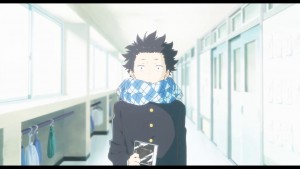
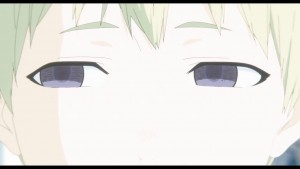
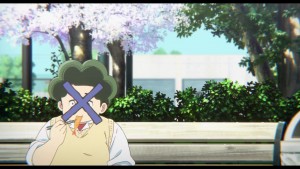
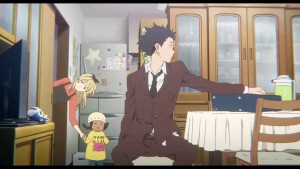
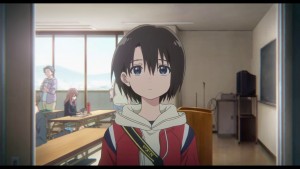
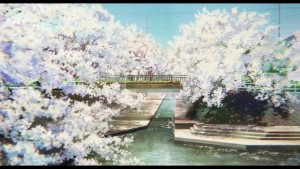
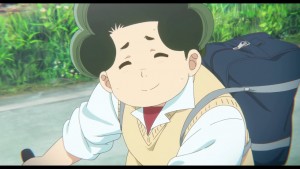
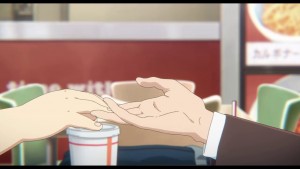
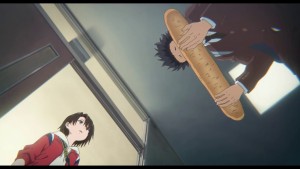
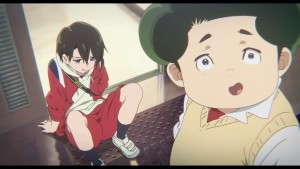

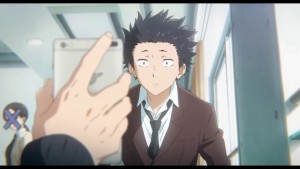
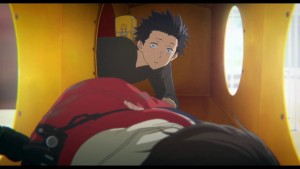
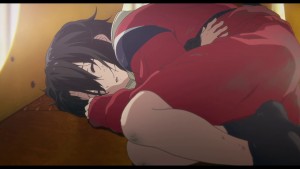
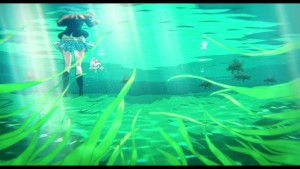
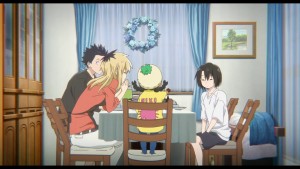
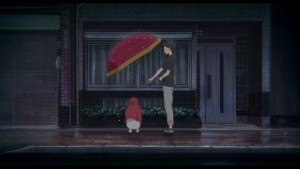
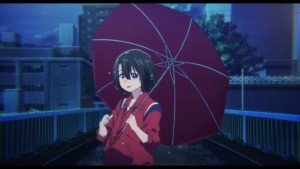
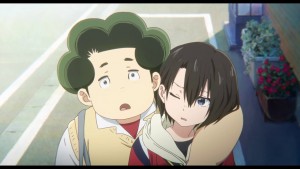
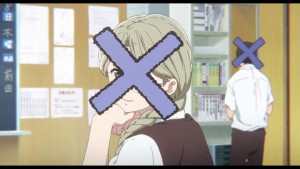
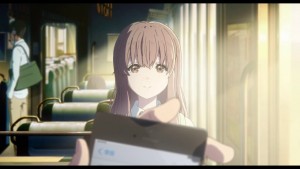
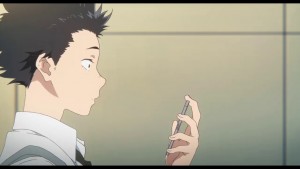
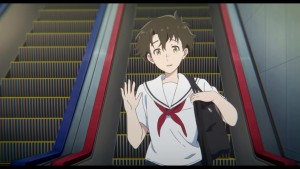
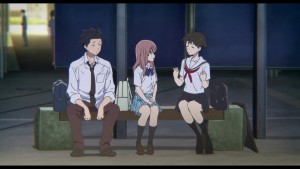
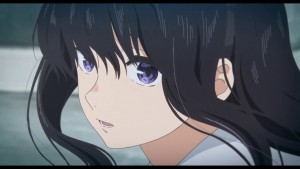
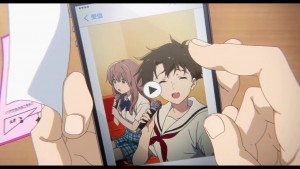
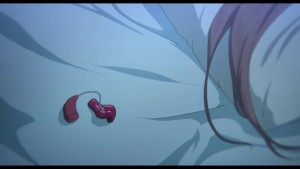
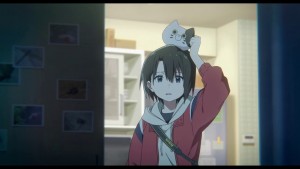
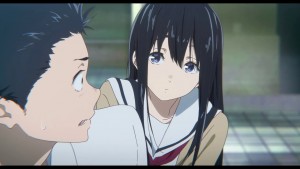
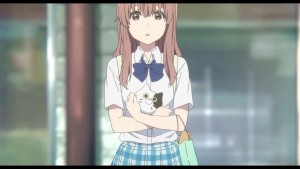
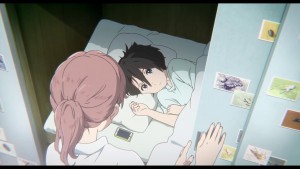
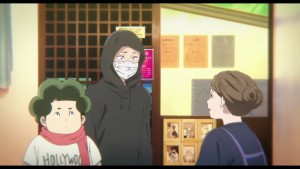
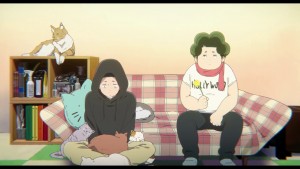
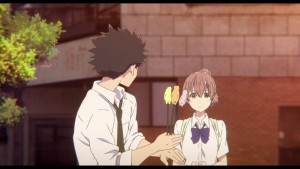
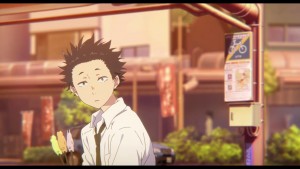
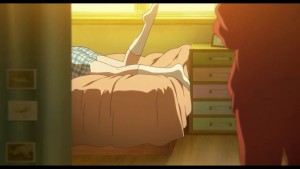
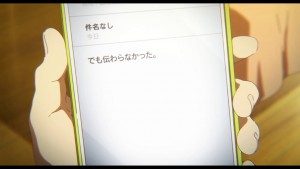
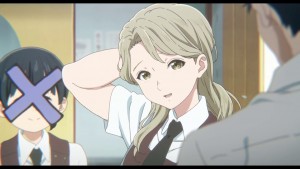
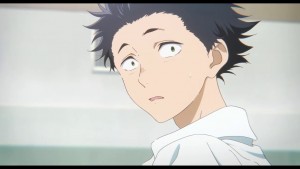
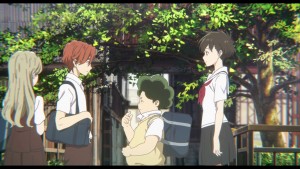
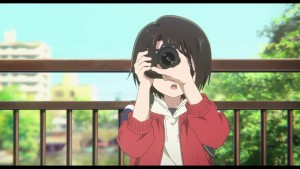
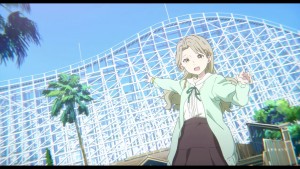
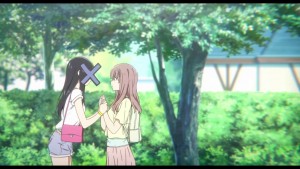
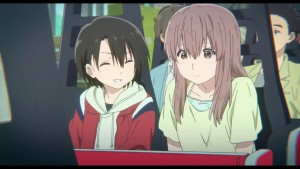
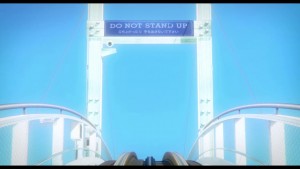

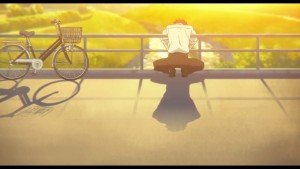
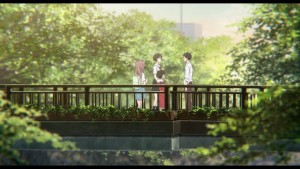
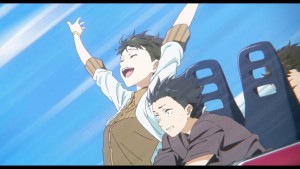
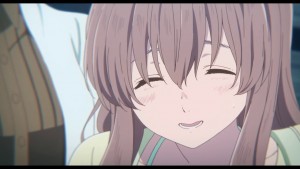
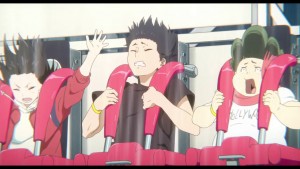
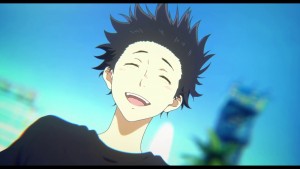
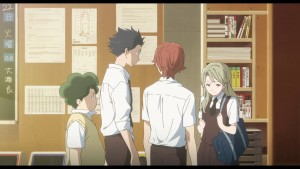
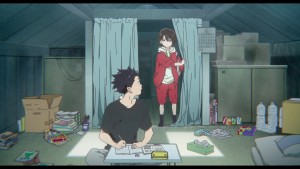
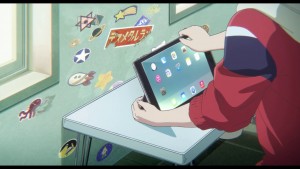
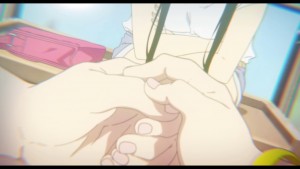
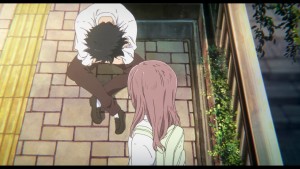
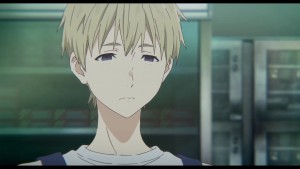
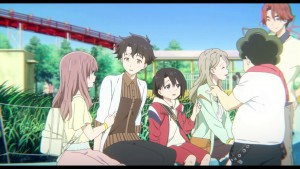
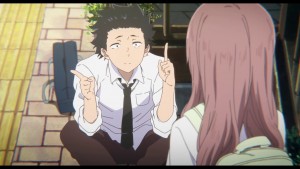
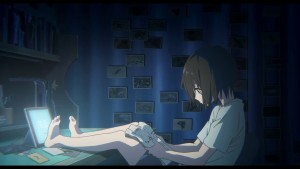
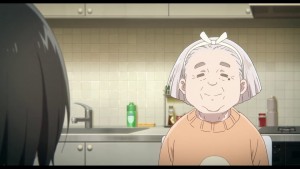
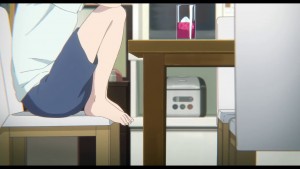
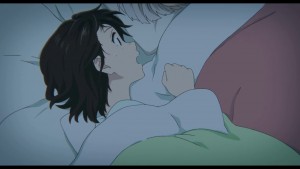
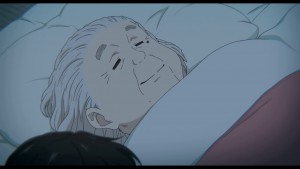
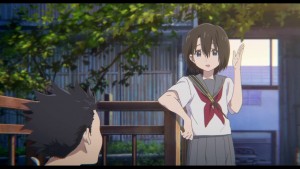
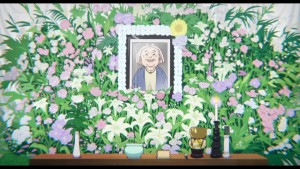
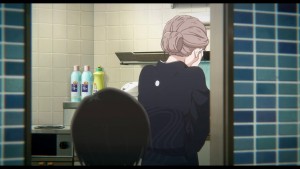
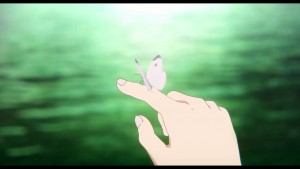
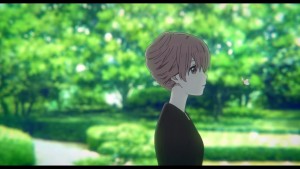

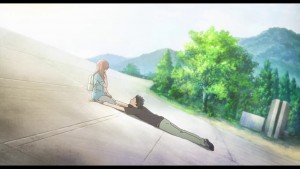
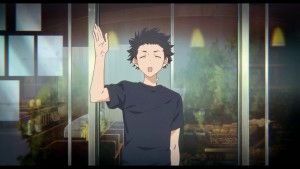
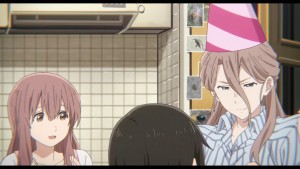
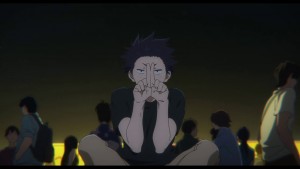

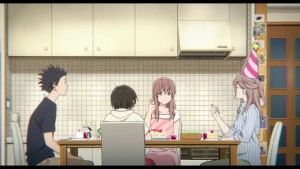
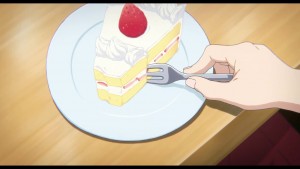
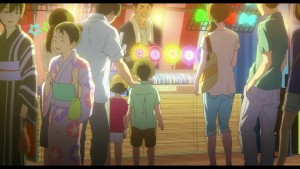
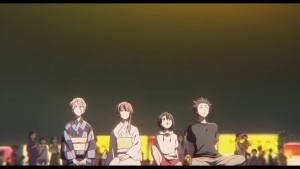
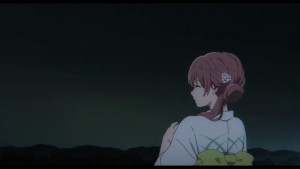
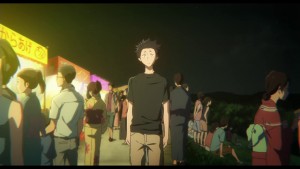
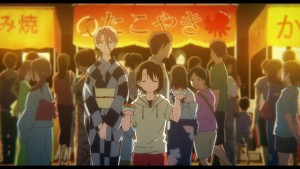
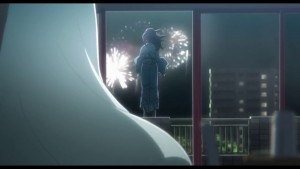
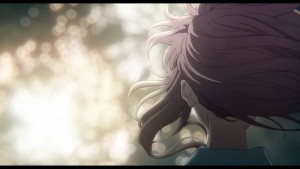
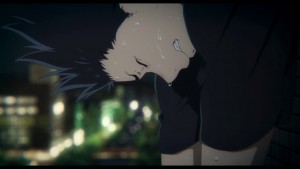
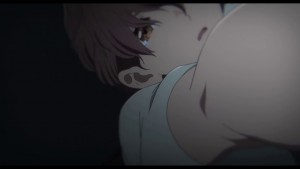
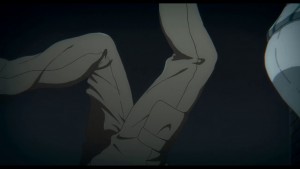
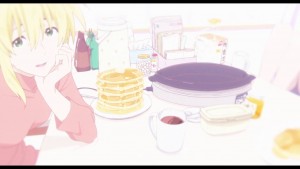
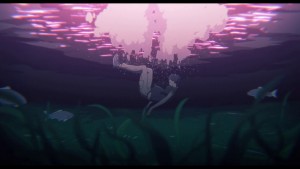
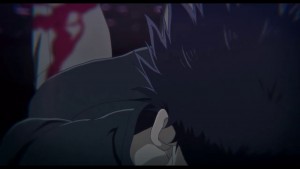
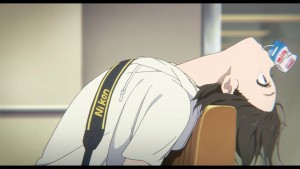
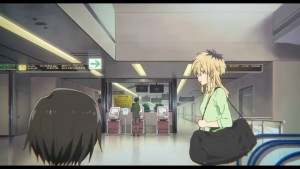
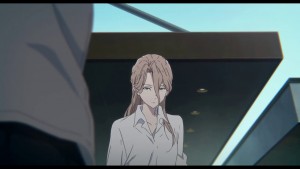
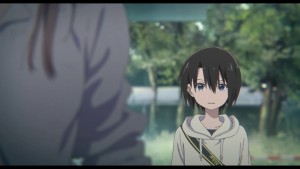
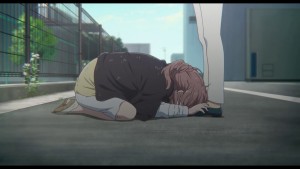
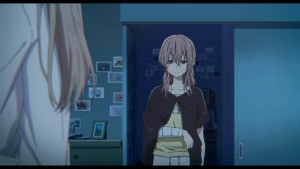
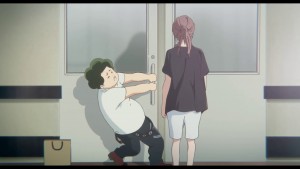
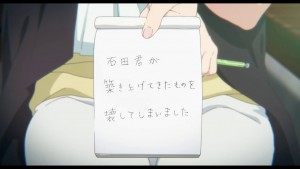
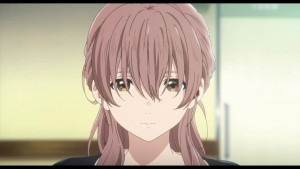
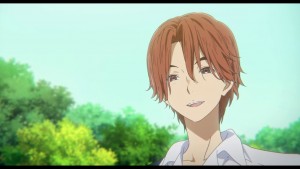
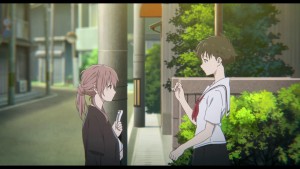
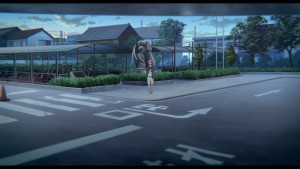
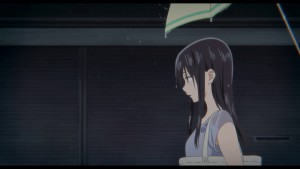
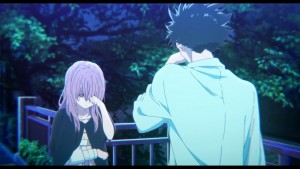
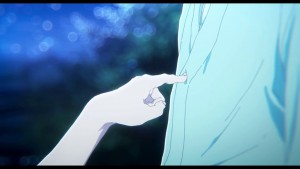
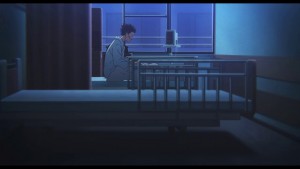
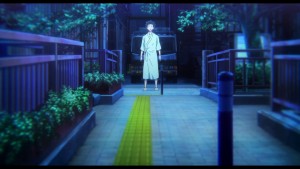
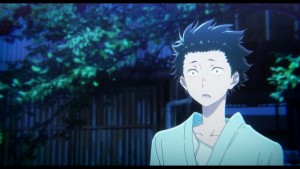
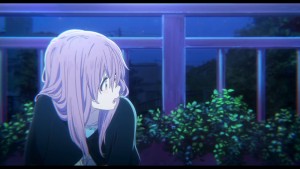
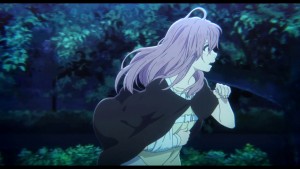
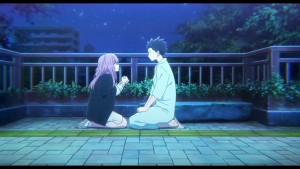
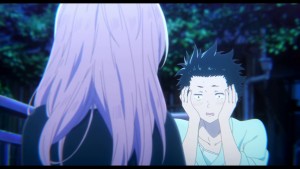
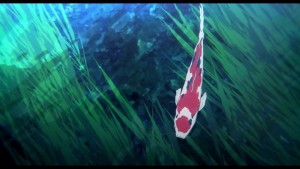
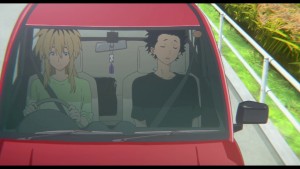
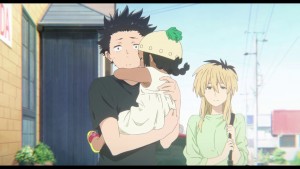
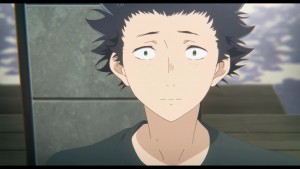
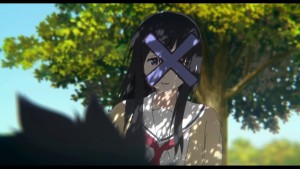

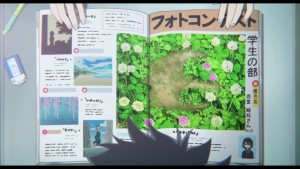
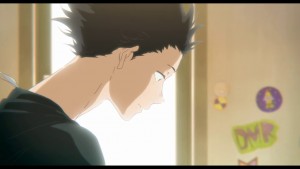
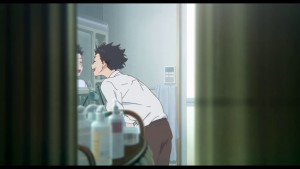
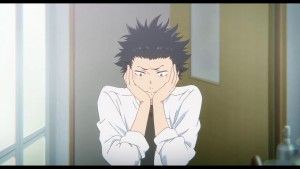
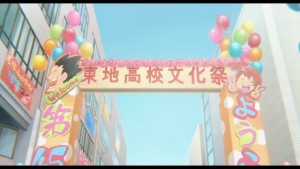
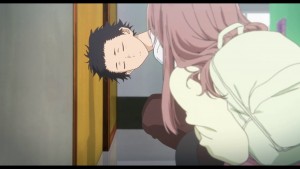
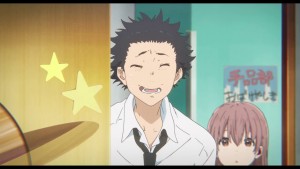
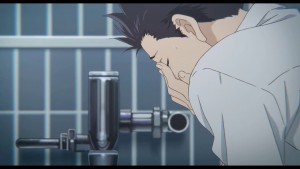
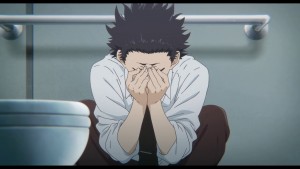
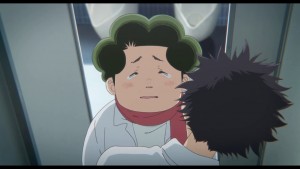
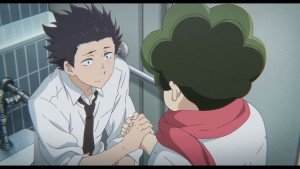
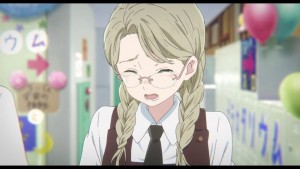
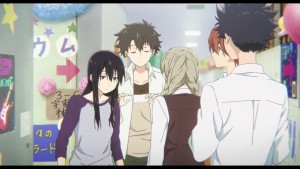
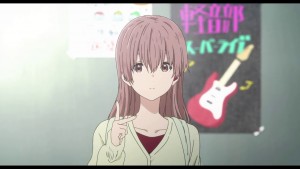
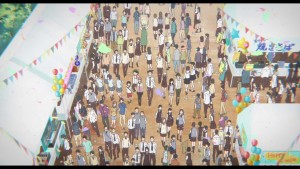
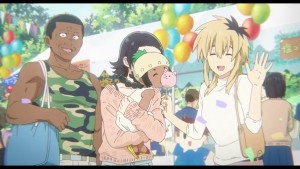
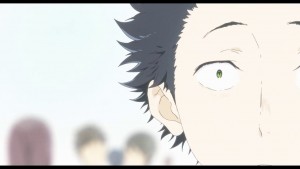
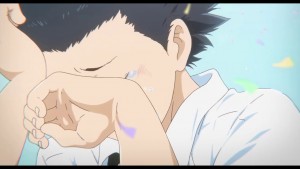
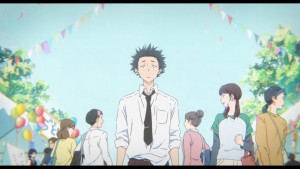
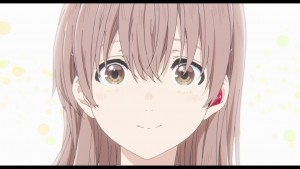
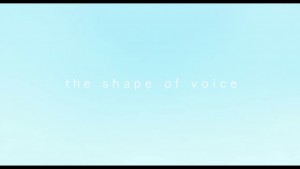


Earthlingzing
May 29, 2017 at 10:18 amAs a non-manga reader I have to say that the line about it feeling both too short and too long was spot on.
Guardian Enzo
May 29, 2017 at 10:27 amIt’s a financial decision (as most decisions at KyoAni are) and I’m sure for them it made sense. But the story definitely would have been better served as a 12-13 episode series.
ruicarlov
May 29, 2017 at 11:08 amI have never read the manga, but I had a general idea of what to expect from some manga reviews I read. I thought the content was really interesting and was quite hyped for this. Perhaps my expectations were too high, as I felt some mild disappointment in the end. Not that it was a bad movie by any means, just not the masterpiece I expected. The reason most likely lies, like Enzo said, in the format they chose to adapt this story. The main duo are well explored, but all the secondary characters come in and out of scene and make me go “Wait, why is he/she hanging out with them again?” From reading some manga synopsis I understood they chose to leave out the movie their group was making. While it’s understandable, it also creates some gaps in the storytelling, as I never quite understood how people from different schools started hanging out so often. Those moments when I felt there were some events missing kind of broke my immersion, and my enjoyment suffered a bit. Overall, it had quite some powerful moments, but some transitions between events were clunky. When the movie relies of lots of subtlety and unspoken feelings (the part where Shouko completely lost her hearing in one ear was great), it needs more time to let some things sink in.
sonicsenryaku
May 29, 2017 at 5:33 pmThis has lept into my top 3 rankings as kyo ani’s best works; Naoko Yamada is a force to be reckon (Out of a lot of the staff working in kyo ani, Naoko Yamada is one of them that i respect a lot; her skill set is qute robust); I think what i like most about her directing style is how she directs with live-action sensibilities; she understands the strengths and weaknesses of both live action and animation and utilizes both mediums’ philosophies to enhance her work. Yamada truly went out of her way to make koe no katachi feel like a film and the overall product is nothing short of beautiful. After checking out the source material, i can understand why certain things were trimmed down, and while it would have been nice to have those things, i didnt really mind not having them in the movie. A good director and film adaptation understand what makes that source material strong; then it uses good storytelling beats in order to drive that point home. Yamada pulls out all the storytelling guns in telling this beautiful tale, effectively weaving all the thematic elements and character intricacies into an emotional rollercoaster of a film. The characters that barely get fleshed out dont overstay their welcome or become placed in aspects of the story where you’d expect them to play bigger roles in this movie. Because Yamada knows she’s condensing so much material and wont have time to flesh out the side cast, she expertly uses them as background noise to tell the story that truly matters. I respect economizing elements of your movie in the right way to maximize what truly matters in the story (or what matters more is a better way to phrase it because the supporting cast did matter in the source material).
This movie captures a sense of depth in its storytelling mechanics that the manga could not reach: 1.because of the differences in the medium but 2. yamada transforms the essence of this tale by using the strength of the medium to tell a tale through powerful moments of intermittent silence (and beating you less over the head with some of its moments). She turns the title of this story on its head, making this movie more about feeling and seeing, than actually listening. Yamada makes this movie not about hearing, but about resonating with a story by immersing itself with……..well….its shape. Yea, this movie was great.
JJ
May 30, 2017 at 1:25 amIt’s not often I am this forthright, but I cannot agree that the secondary characters were all used well, particularly the high schoolers. If I’m borrowing the “background noise” term, I thought that a happy medium was truly only reached by Nagatsuka & Sahara, who get their anxieties neatly tied in to Shouya and Shouko’s story. Mashiba gets a pass as his arc was cut entirely – I can’t be annoyed with something I never knew was there in the first place.
Ueno’s arc was always going to be a tough sell as it had to be back-loaded and therefore compete for screentime with the climax and resolution of the main couple’s story, but I didn’t feel that there were enough hints given about her affection for Shouya, which go a long, long way to explaining her actions and thoughts. Kawai is the big outlier for me – a true-to-life depiction of a narcissist for once in anime, and she is reduced to merely playing the wounded gazelle twice over. Once I’ve read the manga I can finish this thought, but it was painfully obvious even as someone unfamiliar with the source that there was more to be told here. You could argue that there was no point bothering because her defining trait is that she simply could not comprehend her actions as a child or teenager (and I might see that for myself once I’ve read the manga) but to me that’s no more than a cop-out.
The adaptation was good, and it is probably the right move financially. But the movie suffered for its choices.
sonicsenryaku
May 30, 2017 at 2:41 pmThere are plenty of hints about Ueno’s affection for shouya; and i know this sounds very cliche but it’s true in this case. A lot of it is shown through visuals. Right off the bat, the opening credits of the film show you Ueno’s interest in Shouya and layer hints upon hints through the film. Sure they dont sell it right to your face, but the movie does touch upon it in a way that i could get something meaningful out of it (and that was before i read the manga). Im not going to deny that the movie didnt feel pressed for time in certain character arcs; but after looking into the manga and comparing it to the film and what it achieves through its medium, i was thoroughly satisfied. The film just has this quiet, yet palpable catharsis in its directing; bring to this heavy subject matter a sense of painful heartache through melancholic and subtle emotional introspection that elevates the material a bit more than the source was able to. Yes, the original source is the more “complete story” and it is the more definitive version, but the film does what i just mentioned that the source could not.
What i think it comes down to between your and my perception of the film’s adaptation, is that you feel like the adaptation choices makes the film feel clunky at times; this is what i disagree upon. The movie is actually proficient in how it’s constructed in terms of its narrative elements. Where it stumbles is that some of the characters in the film feel like the meat was trimmed off of their story, resulting in there being a feeling of a lessened impact with their presence. See; but that’s significantly different from saying that the film was clunky (as it seems that you’re implying). Im arguing that the film does feel smooth and makes the necessary decisions to maximize the catharsis the narrative is going for, maintaining cohesive narrative flow and engaging the audience with the right narrative beats. Where it stumbles is that, yea, some of the character arcs feel truncated and that empty feeling you get from that trimming does play some role in the film’s integrity when looking at certain character dynamics. I think Yamada avoids problems the trimming would have in making the movie feel clumsy through expert direction, even if one ends up feeling like there are some things missing. Again, i think there’s a difference between feeling a gap as a result of things not being openly fleshed out and feeling a gap in narrative flow because elements are haphazardly thrown together. Koe no katachi is not the latter
Guardian Enzo
May 30, 2017 at 3:08 pmWhatever the reason why things don”t feel “right”, no amount of semantics can change the fact that they don’t. It sounds to me like we’re arguing over the reason why certain aspects of the film don’t work – assigning blame – but not over the fact that they don’t work.
In the end I don’t think it matters much why much of the cast feels tacked on and the story incomplete – sure, one can say it’s not the director’s fault, and it could have been worse if the anime staff had done a half-assed job. But the shortcomings are still there. It’s a very good film in spite of them, don’t get me wrong, but with an equally careful adaptation Koe no Katachi could have made a considerably better one-cour series.
sonicsenryaku
May 30, 2017 at 6:37 pmYea but i still think it’s important to dissect what the film does through its format to dance around certain problems and still deliver an engaging film that can stand on its own two feet without being like “oh, you need to have read the manga to understand why certain things happened in the film.” Either way, you do have a point; we probably wouldnt be having this discussion in the first place about things feeling “missing” if koe no katachi had been a 1-cour series
JJ
May 31, 2017 at 12:01 amPolite edit – GE has (yet again) put into words what I could only half-arse an analogy for. Feel free to ignore the first paragraph.
Yep, that is the disagreement in a nutshell, but having rewatched the movie I would still say that the narrative elements are constructed sufficiently rather than proficiently where the secondary characters are concerned. This is still a good movie, just in case I have given the impression that I didn’t appreciate it. But for me it doesn’t matter if someone cut a hole in the road or if the road was worn down over time – if you happen to run over it, you’re going to feel it.
However, I suspect there’s another angle for the adaptation choices that I haven’t considered yet. From what I’ve seen online, the manga is also criticised, particularly for its seemingly heavy-handed later chapters (I’ve only got through two volumes so far so I’ll leave it there). A lot of this material would been cut for the movie – as I keep reading I’ll see if leaving out those parts has also helped to hone the main couple’s story in the time available.
Guardian Enzo
May 29, 2017 at 5:51 pmIt’s a lot more than just the movie arc they left out, believe me. The haters love to cite that example as evidence all these cuts were a good thing, because it wasn’t especially well-received by some manga readers. But they cut a lot of other stuff too, and it really fleshed out the rest of the cast.
sonicsenryaku
May 29, 2017 at 6:36 pmOh yea no doubt about that; Im pretty deep into my read of the manga and while i feel like the source material provides me with a lot of texture the movie couldnt, Yamada captures the heart of the manga in film form so well that i can forgive it. If you are interested, there was this really good interview with the director I read back when the movie was finishing its theatrical run and it gives quite a bit of insight as to what the thought process was going into the movie:
https://blog.sakugabooru.com/2016/12/27/koe-no-katachi-comic-natalie-interview-naoko-yamada/
Would i have liked this to be a series? Hell yea…..but then i also think to myself about the sense of scale and storytelling flow that movies are great at doing that tv shows dont quite capture; a compelling sense of narrative intimacy that film language in capable of using to immerse you into its world within its runtime. As you have already alluded to, the decision to make Koe no Katachi a movie adaptation was most likely a financial one; however, it was one most likely based on the other upcoming projects they wanted to tackle and the staff they had on hand, as well as the fact that the anime industry is changing in way that is reflective of anime success being found in films. It is sort of reminiscent of anime in its early days during the 50’s and 60’s were the medium was initially tailored to film (which unfortunately saw its end with the depression in japan and the change to more limited animation techniques that the medium has adopted now).
I think the curious side of my brain would want to know what Koe no katachi would have been like if it was a series and what could have been done better. Hey as much as i like the film and think it’s one of kyo ani’s best work, i do think there is room for improvement (as with anything of course). My curiosity to the difference in approach is what compels me to want to see it be adapted as a 12 ep anime. I think with a movie like koe no katachi, it’s very easy to say that this should have been the tv series (mostly as a result of nature of its source material) vs something like Kimi no na wa which arguably maximizes its narrative by being a movie rather than a tv show. Dang it, now you got me contemplating what a kimi no na wa tv series would have been like
Guardian Enzo
May 29, 2017 at 7:44 pmI don’t know… For me, Your Name and Koe no Katachi for me kind of exemplify the difference between a story written to be two hours and one compressed into it. I had no desire to see a series after I watched Your Name – it seemed finished. It’s like a shoe that fits versus one that’s a size too small.
sonicsenryaku
May 29, 2017 at 11:16 pmyea i agree; that’s why i said Your Name maximizes is narrative details effectively through it’s movie format. When writing a movie adaptation if the first thing you’re asking yourself is: “what do i have to cut out and trim from the source material” , your running not running out the gate with your best foot forward; in fact, it’s probably the most impractical and uncomfortable way of writing/directing a film. In that sense, you could argue that kyo ani shot themselves in the foot coming out the gate. With Your Name, i would never look at the film and be like: “yeeeeaaa this definitely needed to be a tv series” or “being a movie is why there are flaws in this film.” Like you said, the movie format fit like a perfect size show for Your name. Im just a geek who like learning, writing, and thinking in new ways, so when i entertained the idea of Your Name having been a tv series, I actually started thinking of what it could have accomplished in that format
kanda92
May 29, 2017 at 2:09 pmNeed to catch up on my anime movies, adding this one to my “To watch” list. Did watch Gantz:0 and Blame on Netflix, some great popcorn entertainment 😀
Simone
May 29, 2017 at 3:14 pmI skimmed the review because I’m currently reading the manga and wanted to avoid any spoilers, but even while reading the manga, I DO have the feeling some fat could have been trimmed off. It’s subjective of course but I feel that the emotional core of the story is much more powerful than some of the subplots and that their insertion owes more to the needs of serialisation than to artistic vision.
Steph
May 29, 2017 at 4:28 pmThanks for the review! While it would have been great to have the manga faitfhully adapted, I’m happy the movie has its own flair while keeping the main core of the story. Hopefully it’ll encourage people having only seen the movie to read the manga as well. And I’m glad Miyu Irino was cast as the main lead. Here’s hoping it gets licensed and gets some exposure.
Matti
May 30, 2017 at 4:35 pmWait, did they ever show the big sister’s Brazilian husband’s face in the manga? So that’s what he looks like, huh.
Guardian Enzo
May 30, 2017 at 4:57 pmHeh, I honestly don’t remember.
niwa
June 3, 2017 at 4:32 pmIt was indeed shown and promptly memefied on 4chan.
Ess
May 31, 2017 at 1:00 pmI greatly enjoyed the movie. The only thing that puzzles me is that scene where Ishida’s mother’s ear is bleeding. I can’t understand what it signifies. Is it a punishment done by Nishimiya’s mother? Or an act of self-infliction to compensate for her son’s misbehavior? Can anyone shed light on this?
HoTaRu
June 1, 2017 at 4:04 pmNishimiya’s mother yanked her earring out because she was furious about what Shoya had done.
Zaiden
June 1, 2017 at 1:57 amI was wondering how people would answer the question ‘What is the shape of a voice?’ after watching that movie. Because it certainly proved that a voice goes beyond vocal expression, and in its purest, unadulterated form is simply an expression of the heart.
Unpopular opinion, but I actually enjoyed the movie more than the manga, Enzo. Maybe waiting weekly for a new chapters broke the continuity and pace of my experience, since I had been following Koe no Katachi since the release of the initial oneshot, so perhaps I should go back and reread Koe no Katachi. Most importantly, the movie managed to leave me tearing up quite a bit, which the manga failed to do for me. Though the manga definitely left me with a sense of catharsis.
Evaluating both as emotional experiences, I felt much more profoundly affected by the movie, and didn’t let the exclusion of certain scenes detract from my enjoyment. That said, I can see why people would take issue with certain directorial decisions. But for me, I didn’t find many of the cut scenes to be that important. Hence it wasn’t a particularly noticeable loss for me.
Seeing certain scenes come to life, specifically where Shouko attempted to commit suicide, and her subsequent raw grief when wracked with guilt apologising to Ishida’s mother was really something else. Yamada Naoko is a truly extraordinary director in her ability to portray the ordinary and simple life, which we can see present in her other works, especially Tamako Market. People often criticise KyoAni’s excessive focus on slice of life, but I felt it was necessary to help ground Koe no Katachi down to earth, considering the various melodramatic and emotionally intense parts. In the end, I think the movie’s balanced portrayal hit home harder.
‘To You, The Immortal’, the most recent work by the same mangaka Yoshitoki Oima, is proving to be an incredible read so far. In my opinion at least. If you haven’t checked it out, I’d certainly recommend doing so in the future when you have time!
Miyu Fan
June 2, 2017 at 8:35 amI’m sharing the same sentiments with you that this should be a tv series and not a movie. I brought my cousin – which sparingly watch anime – to watch the movie and her main complaint is that it’s too slow. Koe no Katachi is almost like a slice-of-life manga where they explore every characters slowly so cramming it all in a movie will make non-manga fans feel like nothing really happens for most of the time and they can’t appreciate the signs that lead to the most defining moment in the movie.
Honestly it’s a manga that every chapter you need to digest and reflect on it. I was lucky that I was following it during it’s weekly run, and even that it was a very emotional roller-coaster for me every time a new chapter released.
Alex
June 3, 2017 at 1:26 amWith this manga being one of my favourites I definitely left the film with a feeling of missed opportunity. Your sentiments in this post mirror that of my own and then some.
I brought a few friends with me to the screening who are relatively fresh to anime (The Kimi no na wa effect) and all of them echoed the same issue with members of the side cast seemingly holding little importance to the story.